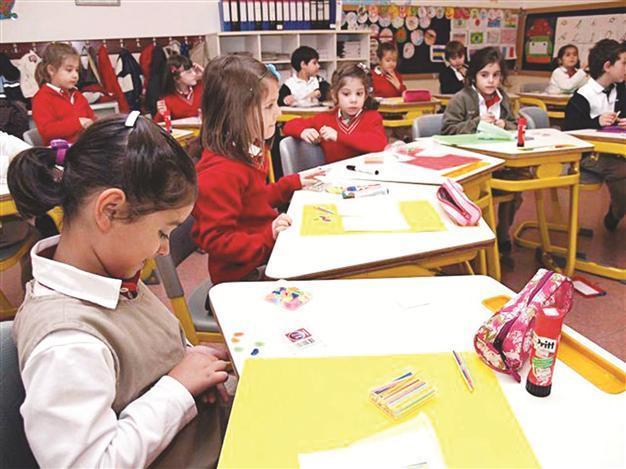Headscarves to be allowed in elective classes in Turkey, minister says
ANKARA - Hürriyet

The long-debated elective classes will include two religious otopics, one called “Quran” and the other “Life of Our Prophet, His Majesty,” which will be offered as part of the new education reform package. Hürriyet photo
Female secondary and high school students will be permitted to wear headscarves in elective religion classes that will be introduced as part of a controversial new education reform bill, Education Minister Ömer Dinçer has said.“Female students in imam-hatip schools can attend this course with headscarves, provided that [they wear it] only during [this] class and in accordance with its requirements,” Dinçer told daily Hürriyet.
Students in other schools can also attend the elective religion courses in headscarves on the condition that they wear it only during these courses, he said.
A wide range of other elective courses will also be introduced in addition to the two new elective religion courses, the “Quran” and the “Life of Our Prophet, His Majesty,” Dinçer said, adding that a council of teachers at each school would then select which of those elective courses to offer.
“I would like to [underscore] that the [claims] that 9-year-olds will begin vocational training and be directed [toward a certain field] at primary schools are neither in line with the law and the pedagogical sciences nor with the pronouncements of our ministry and the developments across the world,” Dinçer said, addressing criticism that the new reforms would lead pupils toward vocational training at a premature age.
Branch teachers
Classroom teachers will run courses during the first four years of school, while specialized branch teachers will take charge of classes for the remaining eight years of mandatory education, according to the minister.
“Children who have passed their 60th month by the end of September will be able to enroll in the first grade of primary school in June and until their 72nd month. There is work underway, however, to allow for children between 61 and 66 months not to be registered, depending on their guardians’ permission and their level of physical development,” he said.
Dinçer also advised parents to wait until relevant changes to existing regulations go through.
Touching on the prime minister’s comments that private teaching centers preparing students for the university entrance exam would no longer be necessary once the test is eliminated, Dinçer said the centers would not be closed by law but that demand for such institutions would dwindle once their raison d’être disappears.
“We are still working to develop more flexible arrangements with respect to university admissions in addition to creating adequate capacity to meet [students’] demand for universities after high school,” he said.
The High School Placement Exam (SBS) will also become redundant when efforts to reduce the number of different types of high schools and to diversify and update their programs reach fruition, he said.
















